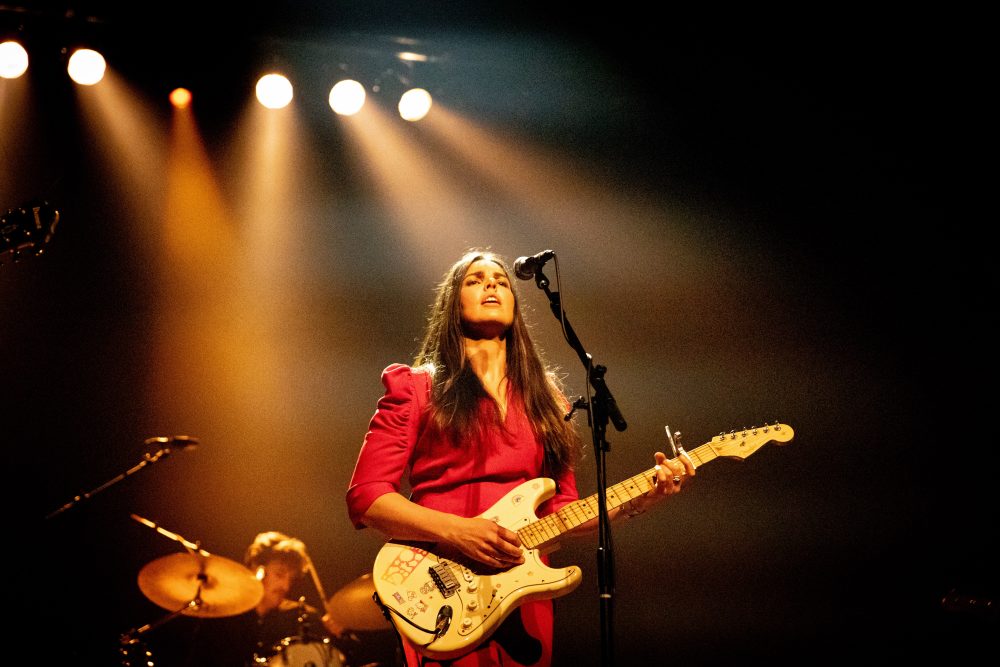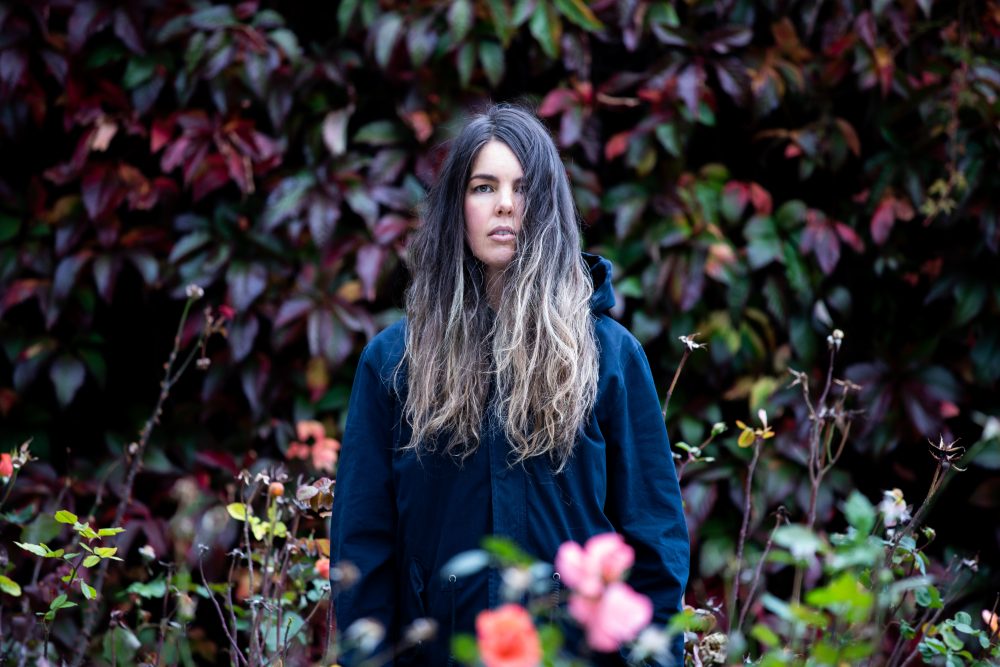
She’s one of New Zealand’s finest singer-songwriters of this era, six albums into a career that has seen her grow and evolve as an artist and person.
Her loyal listeners feel the same sense of progression, with her soothing, real music as their soundtrack to life.
Mel Parsons writes songs about emotions and situations that are very relatable. Though, sometimes she can leave it to the listener to work out, if they’re that way inclined, whether the compositions are autobiographical.
Of her newest album Sabotage, she says: “I like the word, especially with its layered meanings.
“Sabotage comes in many forms. Self-sabotage is the main one in focus here, but leaving it open to however people want to interpret appeals to me as well.”
Fifteen years since she first released Over My Shoulder and 13 winters since Red, Grey, Blue, four albums later Parsons has engaged a large and committed fan base who play a big part in sustaining what she does so well.
They attend her concerts and buy the highly-accomplished and thought-provoking records.
The first show of her 20-date regional Sabotage tour of New Zealand is at Uxbridge Arts and Culture in Howick on Thursday, September 12, a treat for east Auckland fans of original Kiwi music.
“I’m really looking forward to it,” says Parsons. “My main thing is being a touring artist. I love performing and with that I love connecting with audiences, meeting with people, that whole side of it.
“It’s really energising. I’ve got a very loyal audience who come out. I’m excited.”
Originally from the north-west of the rugged, weather-exposed South Island, she’s now living with her own family in the vibrant artistic town of Lyttelton, over the Ports Hills from Christchurch.
“We love it. I’ve been here coming up six years. It’s hard to beat. It’s all the clichés everyone says, great creative community. It’s very cool.”
She’s just been in Canada, playing Vancouver Folk Festival and (Vancouver) Island Fest.
“It’s been a few years since I’ve been playing shows there. It was great to be back and it was so sunny and warm.”
This writer is a big fan of Parsons’ third album, Drylands. On it, there’s a connection to Canada, impressions of a young New Zealander, a musician, on an Overseas Experience (OE).
And on the road playing to different crowds every night, as the song Another City (another town) describes.
“I spent a couple of years based in Canada, so there’s definitely a connection to it. There’s a few songs on that record that talk about that, for sure, she says.
“I was spending a lot of time overseas at that point, doing big runs, six weeks pretty non-stop through a territory, and absolutely loving it.
“But when you’re on the road that much, the rose tint comes off. Literally another town, another city – airports and green rooms and it kind of all blurs into one giant suitcase.”

Fast-forward to a couple of years ago, and the process of producing Sabotage was very different to her previous five albums.
Instead of working with casts of other musicians and producers and at various studios, her newest work was made during Covid times, with one other main collaborator, Josh Logan, her long-time guitarist, multi-instrumentalist and producer.
“This one was literally just the two of us. There are advantages and disadvantages to that. I’m really pleased with what we came up with,” Parsons says.
“Because it was just the two of us, we were just layering all the parts. There’s a lot of agonising going on when you make a record that way, but I love the sound of it. I hope people will enjoy it.
“That was album number six. Every process is different. I always feel I never quite master it, but I also feel over that time and those experiences of making different records, you work out quicker ways of doing it and things that work better, for me and my particular sound.”
Sabotage, with its thoughtful, humanistic storytelling, and beautiful vocals, melody lines and instrumentation, is to this writer’s ear a winter album, one to hunker down to by the fire, and because it was released in June.
“People have said that,” she says. “It’s kind of broody, wrap yourself up and keep warm – in a cosy blanket of music. It wasn’t planned in release timing, it just worked out that way.”
Three singles were released first – Little Sadness, Offer Down, and Circling the City – and when Sabotage was fully revealed, it contained other new gems such as Hardest Thing, which could be a love song with its empathetic words: “The hardest thing, I just want to hear you sing”.
“I think it probably is a love song. It probably sounds silly, but I write in quite an unconscious way,” says Parsons.
“I’m not sort of thinking, right, I’m going to sit down today and write a song about x, y, z, or whatever.
“I start writing and try and not judge it, even find out what it’s about until down the line in the editing side of it.
“It’s a funny thing with lyrics, my songs – some of them are autobiographical, some of them are a seed of an experience or something that I’ve seen or imagined, so it’s kind of a mix.
“My genuine take on that is – to me as a music fan, I obviously love music and like listening to so many artists, I found that I connect more with songs that I actually don’t know the background to necessarily, as it almost lets you write your own story on top of it.
“My take is if you let people decide for themselves what it’s about, it lets people in a little bit easier.
“People think because I’ve put out a reasonable amount of records that I’m very prolific and I’m writing all the time. Honestly, once I’ve written what I need for a record – I’m not writing all the time. But I never have.
“I like to do the writing, and I’m a very deadline-based person. I often need the impending deadline of a studio or record that I’ve got to make.
“In the period between, when I’m promoting or touring a record and before that writing cycle starts again, I’m just living really and soaking in all the things.
“That said, if I’m driving along and a lyric comes into my head I’ll quickly pull over and write it down. I like to live a life between, otherwise I think I’d be a little self-indulgent and a bit detached from the world.”
The song Headland on the Slow Burn album of 2022 was a very respectful tribute, an acknowledgement, of the pioneers that arrived here without electricity and running water, and worked and broke in the land that established and evolved into the New Zealand we know now.
“I really like the thunderous piano in there,” Parsons says. “That one is absolutely thinking about – relative to the people that went before us – our lives are so easy and everything’s so convenient – we get annoyed when the internet goes down, which seems so ridiculous when you think of it in the scheme of things they were cutting roads by hand. It’s quite levelling, when our lives are quite high convenience.
“I grew up on a farm, very rural, right on the coast, beautiful part of the country but very windswept and a lot of rain. That is the backdrop. Placing your imagination back never seemed that hard imagining what it would have been like. Coming in with no infrastructure. It just fascinates me.”








